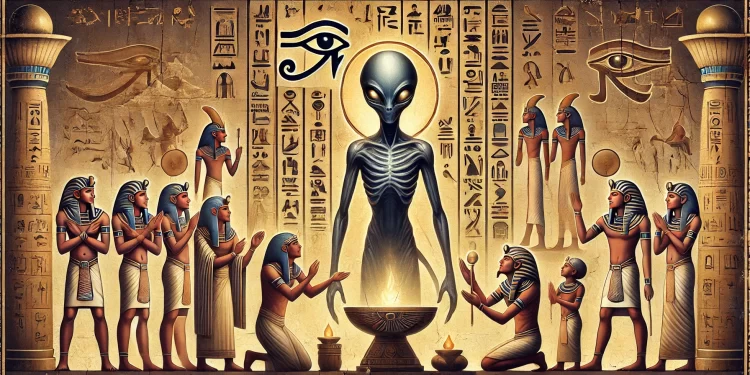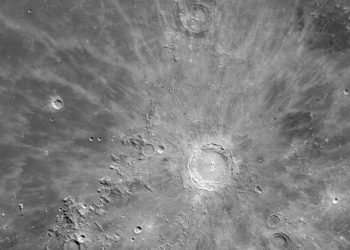Why should we take the belief in alien visitations seriously? According to Dr. Tony Milligan from King’s College London, the issue isn’t whether extraterrestrial visitors have actually arrived, but rather the harmful effects such beliefs can have on society.
In recent years, theories suggesting that ancient civilizations were aided by extraterrestrial technology, or that UFOs are frequent visitors to Earth, have gained significant traction. These ideas, however, lack credible evidence. Most claims about ancient alien interventions can be easily debunked or traced back to fraudulent sources. When it comes to modern UFO sightings, while some credible witnesses report unexplained phenomena, the leap from “we don’t know what this is” to “it must be aliens visiting from lightyears away” is a massive one.
But why does it matter if people believe in aliens? After all, many false claims circulate without causing widespread harm. Dr. Milligan argues that belief in alien visitations can be damaging in several key ways, particularly when it comes to how we view history and interact with science.
Alien Myths
One of Milligan’s central concerns is that claims of ancient alien intervention are rooted in racism(??). The origins of these theories often stem from the refusal of Europeans to believe that non-white civilizations could have achieved remarkable feats on their own. For example, the idea that the pyramids of Egypt or the stone statues of Easter Island must have been built with extraterrestrial help discredits the ingenuity and capabilities of these societies. Instead of acknowledging the advanced technological and architectural knowledge of non-European cultures, pseudo-historians perpetuate the myth that these achievements required alien assistance.
This narrative has a damaging effect by undermining the accomplishments of non-white civilizations, reinforcing the idea that only European cultures—such as the Greeks and Romans—were capable of independent technological innovation. The persistence of this myth continues to diminish the rich histories of ancient cultures, contributing to harmful stereotypes.
The Cultural Impact of Alien Beliefs
Milligan also highlights how these alien myths interfere with indigenous origin stories. By promoting a narrative that suggests external intervention in the development of ancient societies, these theories undermine the ability of indigenous cultures to tell their own stories. In communities already facing the erosion of their traditions and histories, the popularization of alien visitations further complicates their efforts to preserve cultural identity.
Additionally, the economic success of these theories cannot be ignored. Books, documentaries, and YouTube channels dedicated to alien conspiracies have amassed millions of followers and subscribers. While some may see this as harmless entertainment, Milligan argues that these ideas foster a background harm that can subtly influence public perception of history and science.
Alien Stories and Science Communication
Modern-day UFO sightings also present problems, particularly when they become widespread enough that governments feel compelled to respond. Even when governments release documents or declassify files, conspiracy theorists often dismiss them as insufficient, further fueling distrust. Milligan notes that these stories can generate “background noise,” making it harder for science communicators to engage with the public on topics like the speed of light or the challenges of interstellar travel. When people believe that extraterrestrials are routinely visiting Earth, it becomes difficult to teach basic scientific principles.
Milligan proposes that, instead of ad-hoc debunking, there may be a need for a more structured scientific research program (SRP) to address these claims. Although he acknowledges that the widespread belief in aliens may not yet warrant such a program, he argues that the scientific community might need to develop a clearer framework for what would constitute convincing evidence of extraterrestrial life.
In his paper, which is set to be published in the Proceedings of the International Astronomical Union, Milligan explores how a research program could systematically approach these claims. He emphasizes the importance of offering a credible alternative to the current narratives dominating the conversation, particularly since many proponents of alien theories are uninterested in evidence or logical debate.
The Challenges of Investigating Alien Claims
While some claims, like the idea that the interstellar object ‘Oumuamua could be an alien spacecraft, can be scientifically investigated and lead to productive research, many others cannot. For example, the suggestion that similarities in architecture between distant civilizations imply a shared extraterrestrial influence is a pseudo-scientific assertion that cannot easily be addressed through traditional scientific methods.
Despite these challenges, Milligan reminds us that tackling difficult, often frustrating, questions is a core part of the scientific endeavor. The scientific community must remain vigilant and continue to engage with the public in meaningful ways, even when the questions posed seem outlandish.
While belief in aliens may seem harmless to some, Dr. Milligan warns that these ideas carry deeper implications for how we understand history, science, and culture. The persistence of alien narratives not only undermines the achievements of ancient civilizations but also hampers effective science communication in the modern world. By taking these beliefs seriously and addressing them thoughtfully, society can work towards a more accurate and respectful understanding of our past and our place in the universe.
I personally do not agree with everything Milligan put forth in the study.











